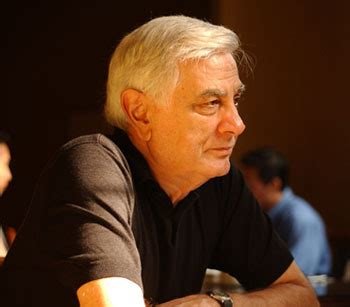A Quote by Christopher Hitchens
Principles have a way of enduring, as do the few irreducible individuals who maintain allegiance to them.
Quote Topics
Related Quotes
You have just taken an oath of allegiance to the United States. Of allegiance to whom? Of allegiance to no one, unless it be God. Certainly not of allegiance to those who temporarily represent this great government. You have taken an oath of allegiance to a great ideal, to a great body of principles, to a great hope of the human race.
The new tinge to modern minds is a vehement and passionate interest in the relation of general principles to irreducible and stubborn facts. All the world over and at all times there have been practical men, absorbed in 'irreducible and stubborn facts'; all the world over and at all times there have been men of philosophic temperament, who have been absorbed in the weaving of general principles. It is this union of passionate interest in the detailed facts with equal devotion to abstract generalisation which forms the novelty of our present society.
It is hard to imagine, but in a Maryland school, a 13- year old girl was arrested for refusing to say the pledge of allegiance. There is more at work than stupidity and a flight from responsibility on the part of educators, parents and politicians who maintain these laws, there is also the growing sentiment that young people constitute a threat to adults and that the only way to deal with them is to subject them to mind-crushing punishment.
The people of the Falkland Islands, like the people of the United Kingdom, are an island race. They are few in number but they have the right to live in peace, to choose their own way of life and to determine their own allegiance. They way of life is British; their allegiance is to the Crown. It is the wish of the British people and the duty of Her Majesty's Government to do everything that we can to uphold that right. That will be our hope and our endeavour, and, I believe, the resolve, of every Member of this House.
A large body of people, sufficient to make a nation, have come to the conclusion that they will have a government of a certain form. Who denies them the right? Standing with the principles of '76 behind us, who can deny them the right? ... I maintain on the principles of '76 that Abraham Lincoln has no right to a soldier in Fort Sumter. ... You can never make such a war popular. ... The North never will endorse such a war.
Principles always have natural consequences attached to them. There are positive consequences when we live in harmony with the principles. There are negative consequences when we ignore them. But because these principles apply to everyone, whether or not they are aware, this limitation is universal. And the more we know of correct principles, the greater is our personal freedom to act wisely.
Our allegiance is to the principles always, and not to the persons. Persons are but the embodiments, the illustrations of the principles. If the principles are there, the persons will come by the thousands and millions. If the principle is safe, persons like Buddha will be born by the hundreds and thousands. But if the principle is lost and forgotten and the whole of national life tries to cling round a so-called historical person, woe unto that religion, danger unto that religion!
The journalist's first allegiance is to those who receive the work. Although there is no doubt that many owners and business managers of news organizations also have a deep allegiance to the public, that allegiance is necessarily alloyed with their concern for their own point of view or for the bottom line.
If human nature does alter it will be because individuals manage to look at themselves in a new way. Here and there people - a very few people, but a few novelists are among them - are trying to do this. Every institution and vested interest in against such a search: organized religion, the state, the family in its economic aspect, have nothing to gain, and it is only when outward prohibitions weaken that it can proceed: history conditions it to that extent.
































